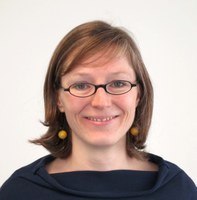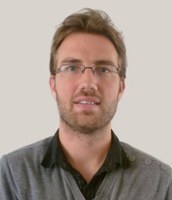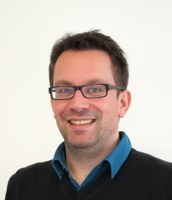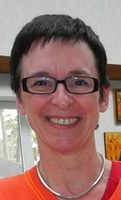Partners
UNamur
 Anne-Sophie Collard
Anne-Sophie Collard
Anne-Sophie Collard has a PhD in information and communication sciences and is professor at the University of Namur. Her researches mainly focus on ICT uses and representations constructed both by users and by ICT designers. Through semio-cognitive and socio-cognitive approaches, she integrates techno-semiotic, social and cognitive dimensions in her works.
She is director of the Communication and Internet Unit of the Information, Law and Society Research Center (CRIDS).

The Information, Law and Society Research Center (CRIDS)
The research of the Communication and Internet Unit is focused on the analysis, the reflection and the popularization of the phenomena that make up the Web: uses it generates, contents it produces, attitudes it supports or constrains, techniques which are used and modified by users, societal changes it induces and rules it creates.
UCLouvain
 Pierre Fastrez
Pierre Fastrez
Pierre Fastrez is a Research Associate of the Belgian National Fund for Scientific Research and a lecturer at the School of Communication (COMU) and the Center for Research in Communication (RECOM) of the Université catholique de Louvain (Belgium).
His research focuses on the influence of information and communication technology on the cognitive activities they support, and on the evaluation of media literacy competences. In this second research domain, he has developed an interest for the following questions:
- the conceptual definition of media literacy;
- the development of validated media literacy levels assessment tools;
- the relationship between the individuals' media literacy levels and their ability to appropriate contemporary environmental issues through the media;
- the relative efficiency of media education initiatives depending on their pedagogy.
 Thibault Philippette
Thibault Philippette
Thibault Philippette holds a Ph.D. in Information and Communication. He has completed a doctoral thesis on socio-cognitive analysis of collective and at distance practices of players in MMORPG environments. Furthermore, he participated in European and National researches on media literacy assessment and media education with UCL team members. He also has a 4-year professional experience as communication assistant.
He was previously associated with Anne-Sophie Collard in the coordination of the project (WP1). He is now involved in supervising Work Package 4 researches.
 The GReMS
The GReMS
Founded in 1995, the GReMS is a research unit of 3 faculty and 10 PhD students and researchers dedicated to basic and applied research in educational media and media education. It is one of the three research teams of the Center for Research in Communication (RECOM), which aims at developing knowledge and federating research efforts in information and communication sciences within the Université catholique de Louvain (UC Louvain). RECOM is itself a division of the Institute for Language and Communication (IL&C), which gathers researchers in linguistics and communication.
Since its creation, the GReMS has developed an expertise in the study of the mediated communication of knowledge, the educational uses of ICT, and the assessment of media literacy competences. Its main theoretical orientation is cognitive semiotics, which examines the relationship between cognition and external representations. The GReMS maintains a strong empirical and experimental research tradition within communication sciences, in which hermeneutics and interpretative approaches stand as the dominant methodological model.
USL-B
 Geoffroy Patriarche
Geoffroy Patriarche
Geoffroy Patriarche is a full-time professor in Communication studies at Université Saint-Louis - Bruxelles and serves as coordinator of PReCoM, the Research Centre for Communication and Media. His main research interests include media audiences, digital literacy and the changing practices of interaction and participation in the media sphere.
Geoffroy Patriarche has been chair of the COST Action IS0906 Transforming Audiences, Transforming Societies (2010-2014, http://www.cost-transforming-audiences.eu). He has co-edited The Social Use of Media: Cultural and Social Scientific Perspectives on Audience Research (Intellect, 2012) and Audience Research Methodologies: Between Innovation and Consolidation (Routledge, 2013).
 Research Centre for Communication and Media (PReCoM)
Research Centre for Communication and Media (PReCoM)
The Pôle de Recherches sur la Communication et les Médias / Research Centre for Communication and Media (PReCoM) brings together academics and researchers at Université Saint-Louis - Bruxelles (USL-B) who are researching communication and (new) media from a range of theoretical and methodological perspectives. While PReCoM is mainly rooted in media and communication studies, it also combines approaches from other fields and disciplines in the humanities and the social sciences in order to address different dimensions of the media-society nexus.
KU Leuven
 Monique Ramioul
Monique Ramioul
Monique Ramioul is a sociologist and holds a PhD in Social Sciences. She is the head of the Work and Organisation Research Group at the HIVA Research Institute for Work and Society-KULEUVEN. Her research experiences concern research on work and organisation in both qualitative and quantitative research designs.
Her main research topics include: organisational restructuring and innovation, changes in work, skills and qualifications and quality of work. She has a strong track record in both participation in and coordination of European projects.
 HIVA Research Institute for Work and Society
HIVA Research Institute for Work and Society
HIVA Research Institute for Work and Society is a multidisciplinary research institute of KU Leuven. HIVA specialises in academic and policy-oriented research that can provide a very specific response to current policy issues. We carry out research that works! Bringing together experts from different disciplines and our specialisation in policy-oriented research on work and society give HIVA a unique position within KU Leuven and outside the university.
The research activities of HIVA are organised into six groups, namely Work and Organisation; Labour Market; Poverty, Social Integration and Migration; Sustainable Development; Education and Lifelong Learning; Welfare State and Housing.





